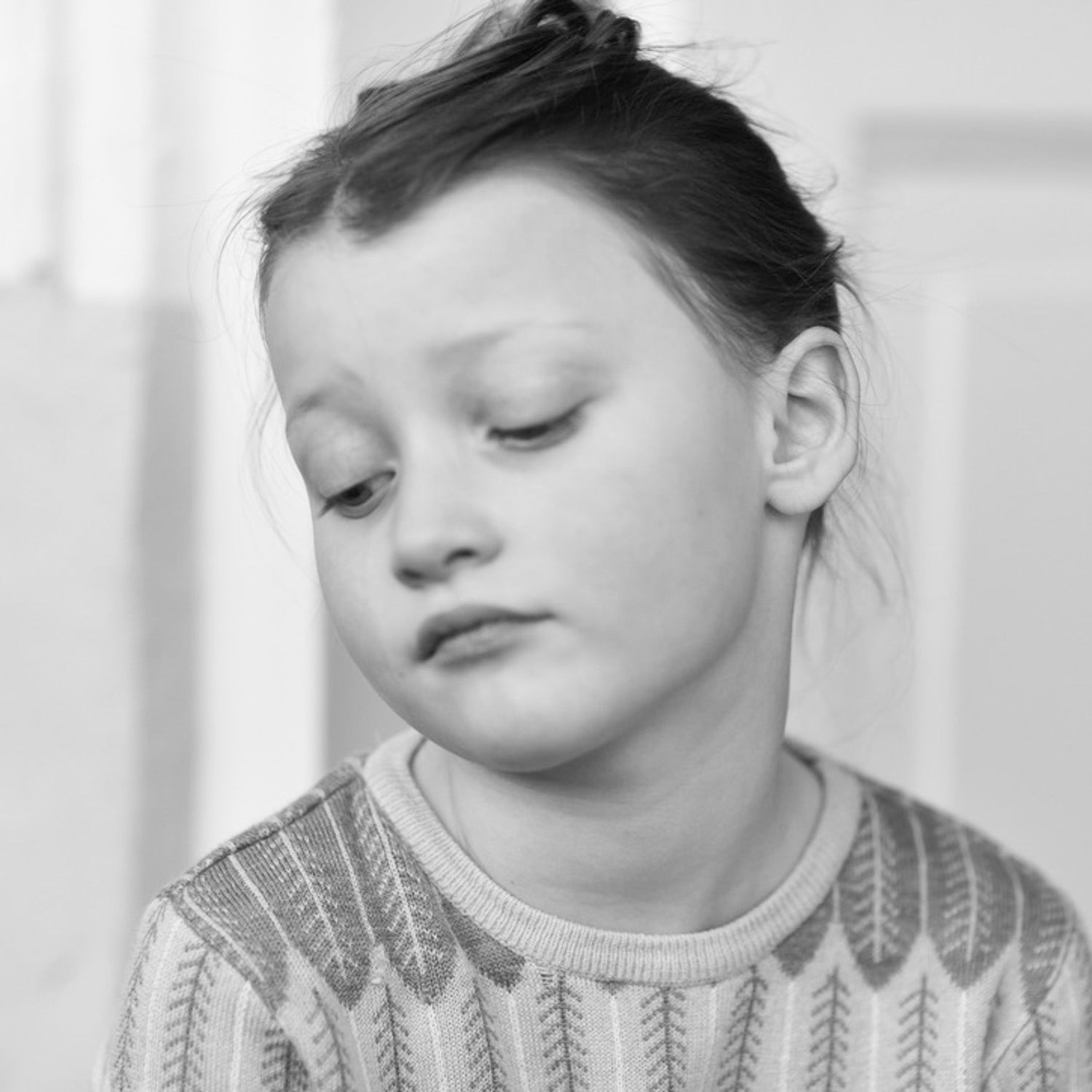Can we teach children to deal with stress?
We hear a lot about stressed children today and it has probably never been more important to learn how to deal with stress. Stress is something that can affect children's lives and well-being in many ways, both in the short and long term. It is important to highlight the consequences that stress can have on children and their health, as well as give tips on how we as adults can help them deal with stressful situations.
The American philosopher William James believes that "The greatest weapon against stress is our ability to choose one thought over another". By this he means that our thought process plays an important role when it comes to dealing with stress. We can choose to focus on negative thoughts and feelings that increase our stress, or we can choose to change our focus and instead focus on more positive and constructive thoughts that reduce our stress level. Of course not an easy task, but possible to achieve with the right tools..
What consequences can stress have on children? Stress is a natural reaction that the body has to deal with challenges and dangers in everyday life. But when the stress becomes too much and for too long, it can affect our health negatively. And children are not immune to the negative effects of stress.
Research shows that when children experience stress, it can affect their development and health in several ways. A study published in the journal Development and Psychopathology shows that high levels of stress in children can lead to emotional dysregulation, which can cause problems with self-control and impulse control later in life. Another study published in the Journal of Abnormal Child Psychology shows that stress during childhood can increase the risk of anxiety and depression later in life. In other words, something that is vitally important to notice and deal with. Learn to spot symptoms of stress in children.
In addition to psychological problems, stress can also affect children's physical health. A study published in the journal Psychosomatic Medicine shows that stress can lead to inflammation in the body, which in turn can increase the risk of health problems such as heart disease and diabetes. It is important that we as a society take responsibility for reducing stress in children and young people. According to psychologist Deborah Serani, it is important that we listen to the children and give them tools to deal with stress in a healthy way. She says: "It's important that we empower children to talk about their stress and give them strategies to deal with it. As we help children manage stress, we also teach them to take care of their health in a more holistic way. "
What impact does stress have on children's mental health and well-being, now and as they get older? Stress naturally has consequences. Stress can have a negative impact on children's mental health and well-being, both in the short and long term. A study published in the journal Child Development found that children who experience high levels of stress may be at increased risk of mental illness as adults, including depression and anxiety. The researchers concluded that "stressful events during childhood may increase vulnerability to mental illness throughout life". Another study examined the relationship between childhood stress and physical health as adults. The researchers found that "higher childhood stress was significantly associated with poorer adult physical health" and that this effect was independent of socioeconomic status and lifestyle factors.
It is important to note that stress is not always harmful to children, and in some situations it can even be beneficial. As psychologist Mark D. Seery points out, "Stress is a normal part of life, and it's often possible to manage it without negative effects. Sometimes stress can actually be good - it can help you grow and develop in different ways".

How do we reduce stress for children?
Psychologists and philosophers explain and give tips on how we can find more peace in everyday life. Stress is an increasingly common phenomenon in today's society, and it affects people's health and well-being in different ways. In order to manage stress and find more peace in everyday life, it can be valuable to use different methods and techniques. Psychologists and philosophers have long been interested in this topic and have given advice on how to deal with stress. One of the best-known methods for dealing with stress is mindfulness, which can be defined as "being present in the moment in a non-judgmental way". According to psychologist Jon Kabat-Zinn, mindfulness can increase our ability to deal with stress and help us become more aware of our thoughts and feelings. He says, "Mindfulness is simple, but that doesn't mean it's easy. It's a practice, a discipline, and the more we practice, the more we notice changes in our lives."
There are many other techniques and methods for managing stress, including physical activity, relaxation techniques, and cognitive behavioral therapy. The important thing is to find a method that works for you and to integrate it into your everyday life.
How can we talk to the children about stress? Talking to children about stress can be challenging, but it's important to teach them how to deal with stressful situations in a healthy way. A good starting point is to explain what stress is and why we experience it. According to psychologist Lynn Lyons, it's important to point out that stress is a normal reaction to life's challenges: "I explain to the kids that this is what happens in the body when we're worried or nervous, and that it's normal to feel that way sometimes. But we need to learn to deal with it so it doesn't take over our lives."
It is also important to avoid creating additional stress by pressuring children to "manage" their stress on their own. Psychologist Barbara Markway reminds us that "you don't have to have all the answers yourself. It's actually better to admit when you don't know what to do, and enlist the help of others to find solutions."
Talking about stress with children can also be an opportunity to introduce relaxation exercises and other techniques for dealing with stress. Why we have stress and how together we can get better at handling stressful situations According to a study, it can be helpful to see stress as something that can be managed and controlled. By thinking of stress as an opportunity to grow and develop, we can become more resilient and better equipped to handle stressful situations in the future. It is our job as adults to support the children in all of this. Managing stress and avoiding problems is an important task for us as individuals, but it is also something that we can do together as a collective.
Consequences of stress
Philosophers have long discussed the importance of building community and having a supportive network to cope with stress and hardship. One of the most famous philosophers when it comes to dealing with stress is Epictetus, who lived in ancient Greece. He emphasized the importance of having the right attitude to stressful situations. He said: "It is not what happens to us, but our perception of what is happening that causes our suffering". This means that we can choose how we react to stressful situations, and by changing our attitude, we can reduce the impact of stress on us.
When we talk about dealing with stress as a collective, it is important to look at our social interactions. A study shows that social support can act as a buffer against stress. Having a supportive network of friends and family members can help us cope with stressful situations and reduce our anxiety. Another study, published in the journal Social Science & Medicine, found that participating in social activities can reduce stress and increase well-being.
In conclusion, it is important to look at both individual and collective strategies for dealing with stress. By changing our approach to stressful situations, focusing on our inner well-being and building community and social networks, we can help ourselves and each other avoid problems and deal with stress more effectively. Helping the stressed children in all this is of course our responsibility. Our emotion cards are a great first step in becoming more aware of your emotions.. Click here to see what might suit you.





